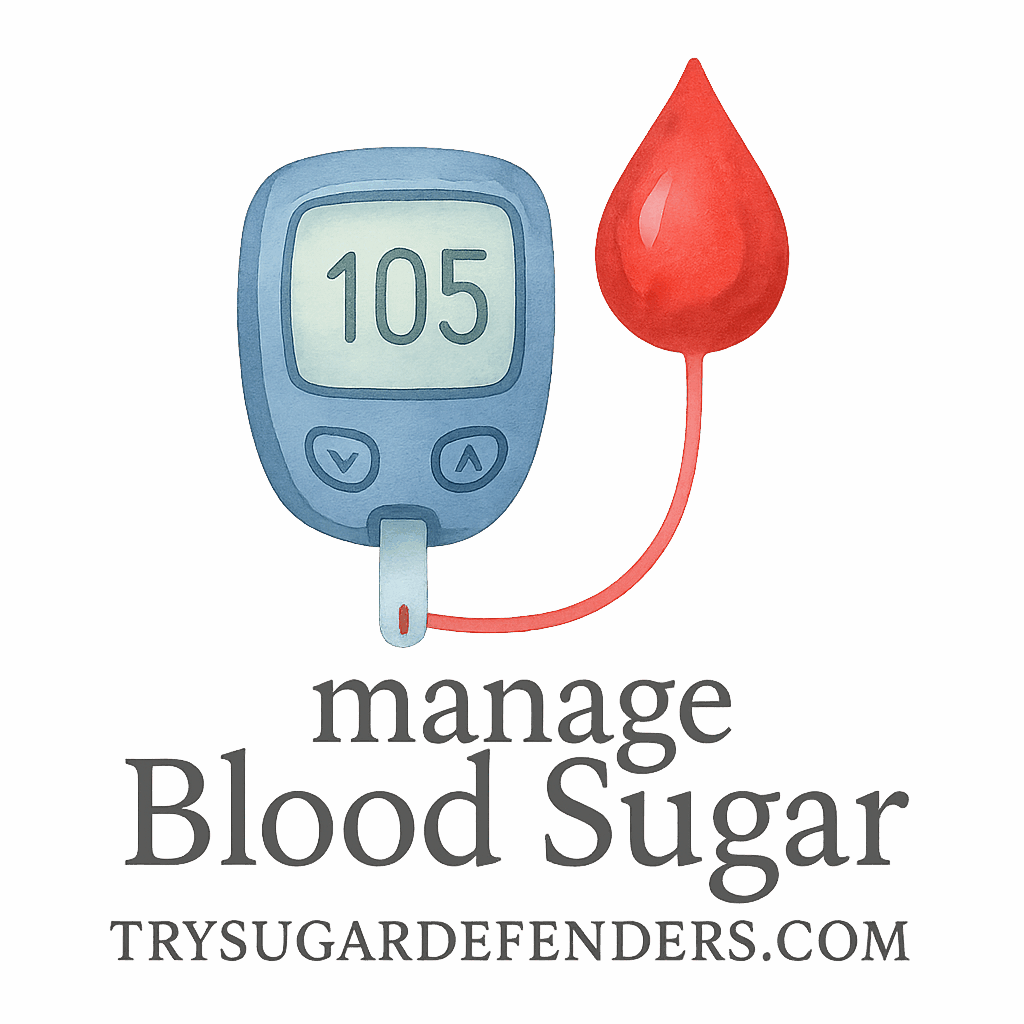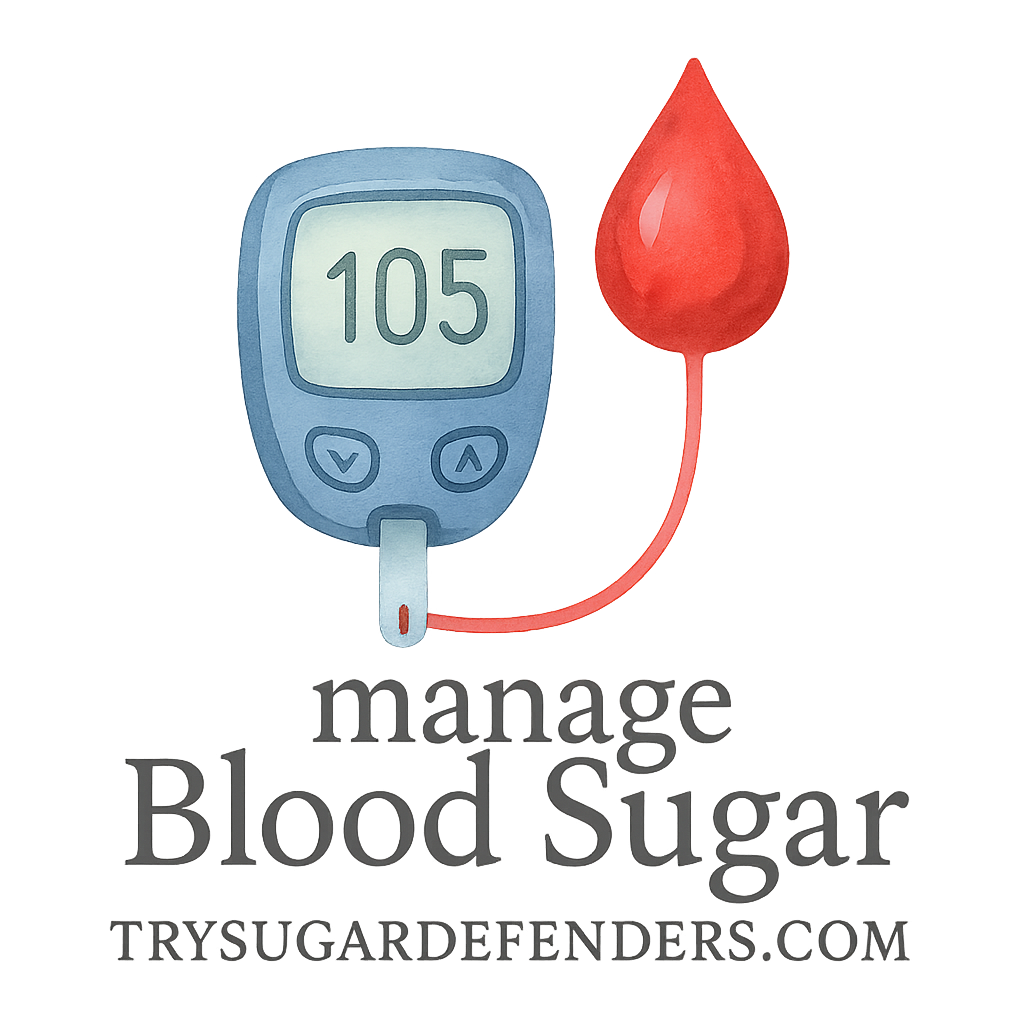Managing your blood sugar isn’t just about watching what you eat—it’s a team effort, and your doctor should be your MVP. Whether you’ve just been diagnosed or you’ve been dealing with blood sugar issues for years, there are critical topics you need to bring up at your next appointment.
Let’s dive into the six most important things you should discuss with your doctor to take control of your health.
Why Talking to Your Doctor Matters
Ever felt like you’re navigating your blood sugar journey alone? You don’t have to. Your doctor can help you form a personalized plan that actually fits your lifestyle. The more informed your conversations, the better your results.
By preparing the right questions and having open discussions, you’re more likely to catch problems early, reduce risks, and even optimize treatment outcomes. This conversation could be the turning point in your blood sugar journey.
1. Symptoms of Blood Sugar Imbalance
Common Symptoms You Should Mention
Start by talking about any strange things you’ve been feeling. Fatigue, frequent urination, unexplained weight changes, brain fog, or blurred vision—these might be subtle signs that your blood sugar isn’t where it should be.
How Symptoms Vary Between High and Low Blood Sugar
Make sure you and your doctor clarify whether you’re experiencing symptoms of hypoglycemia (low blood sugar) or hyperglycemia (high blood sugar). The treatment for each is very different!
You can also explore symptom comparisons at Try Sugar Defenders – Monitoring & Tracking for a helpful breakdown.
2. Blood Sugar Monitoring Tools and Devices
Glucose Meters vs. Continuous Glucose Monitors (CGMs)
Monitoring is the foundation of good control. Ask your doctor which device is best for you—traditional glucose meters or tech-forward CGMs.
CGMs offer real-time data and reduce finger pricks, while basic meters might be just fine if your condition is less complex.
Choosing the Right Device for Your Lifestyle
Your routine, budget, and even tech-savviness matter. Don’t hesitate to ask about options that sync with your smartphone or allow for easier trend tracking.
Check out monitoring tools and device comparisons to better understand your choices.
3. Diet and Nutrition Plans That Work for You
Discussing Specific Diets: Mediterranean, Low-Carb, and More
Nutrition is one of the core pillars of blood sugar management. Bring up any dietary patterns you’re trying or interested in—like the Mediterranean diet, intermittent fasting, or keto—and get your doctor’s take on which one suits your needs.
Customizing Your Nutrition Plan
Every body is different. Your doctor can guide you to a diet tailored to your blood sugar responses, weight goals, and lifestyle.
Explore the full diet and nutrition guide and related tags to build a strong eating routine.

4. Exercise and Lifestyle Adjustments
Best Exercises for Stable Blood Sugar
Exercise isn’t optional—it’s essential. From strength training to walking after meals, discuss what types of activities best match your current health and fitness level.
Lifestyle Habits That Help Maintain Control
Ask about routines that can stabilize your readings, like sleep hygiene, hydration, and even mindfulness. These can significantly improve your blood sugar management.
Visit the exercise and lifestyle hub for more strategies.
5. Behavioral and Mental Strategies for Control
The Role of Stress, Sleep, and Mental Health
Stress raises blood sugar. Poor sleep? Same story. It’s time to open up about how life’s pressure affects your readings and explore mental health support options with your doctor.
Incorporating CBT and Habit Change
Cognitive Behavioral Therapy (CBT) and habit restructuring work wonders. Ask your doctor about programs or specialists that help shift behaviors affecting your condition.
For more on this topic, check out behavioral and mental strategies and these tags: CBT, mental-strategies.
6. Medication, Supplements, and Side Effects
Questions About Medications and Dosages
Don’t just accept your prescriptions blindly—ask why. Clarify what each medication does, how long you’ll need it, and what side effects you might experience.
Asking About Natural and Medical Supplements
There’s growing interest in natural aids like cinnamon, berberine, or chromium. But not all supplements are safe or effective.
Explore trustworthy resources on medical supplements and tags like “medical” and “supplements”.
Questions You Should Prepare Ahead of Your Visit
Being Your Own Health Advocate
Empower yourself with a list of your blood sugar averages, food logs, and questions. Your doctor will appreciate the initiative—and you’ll get better results.
Creating a Blood Sugar Management Plan Together
Don’t just focus on short-term fixes. Work with your doctor to create a long-term strategy that includes regular consultation, goal-setting, and adaptive routines.
Final Thoughts on Open Communication
The better you communicate, the better your care. Managing blood sugar isn’t just about glucose—it’s about connection, understanding, and planning. And that starts with a simple, honest conversation.
For further support and personalized advice, visit the Try Sugar Defenders homepage.
Conclusion
Your doctor isn’t just someone who hands you a prescription—they’re a key player in your health journey. Whether it’s understanding symptoms, choosing the right devices, building a diet, or navigating mental and lifestyle shifts, these discussions form the blueprint of effective blood sugar control.
Next time you’re sitting in that consultation room, bring this list with you. Speak up. Ask questions. Share your experiences. That’s how you go from managing to mastering your health.
And hey, you’ve got this.
FAQs
1. What’s the best way to track blood sugar at home?
Use either a glucose meter or a CGM, and check out monitoring options to find one that suits your needs.
2. Should I tell my doctor about over-the-counter supplements?
Absolutely. Even natural supplements can interact with meds, so always bring them up. Explore safe supplement strategies here.
3. Can my mental health affect blood sugar?
Yes! Stress, anxiety, and depression all play a role. Check the behavioral mental strategies page for practical help.
4. What diet is best for blood sugar control?
There’s no one-size-fits-all. But Mediterranean, low-carb, and balanced plans are top contenders. Learn more on our diet and nutrition page.
5. Do I need to exercise every day to control blood sugar?
Not every day, but consistency helps. See fitness-related strategies that fit your routine.
6. What if I feel fine—do I still need to talk to my doctor?
Yes! Silent changes can still occur. Regular consultation helps you stay ahead of problems.
7. How do I create a long-term plan with my doctor?
Ask about creating a goal-based routine and explore planning tools on this tag.


